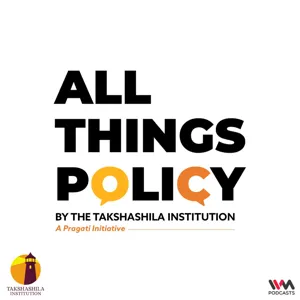Police Laws of India | Police Chowki

In the second episode of the Police Chowki series, Javeed Ahmad and Shrikrishna Upadhyaya discuss the colonial roots of police legislation in India, the subsequent attempts to reform the Police Act of 1861, the Supreme Court decision in the Prakash Singh case on police reforms, the effectiveness of the reforms and guiding principles for police laws.
Do follow IVM Podcasts on social media.
We are @IVMPodcasts on Facebook, Twitter, & Instagram.
https://twitter.com/IVMPodcasts
https://www.instagram.com/ivmpodcasts/?hl=en
https://www.facebook.com/ivmpodcasts/
You can check out our website at https://shows.ivmpodcasts.com/featured
Follow the show across platforms:
Spotify, Google Podcasts, Apple Podcasts, JioSaavn, Gaana, Amazon Music
Do share the word with your folks!
See omnystudio.com/listener for privacy information.

